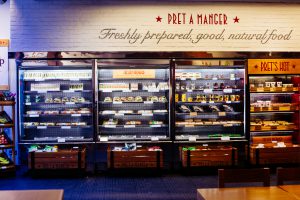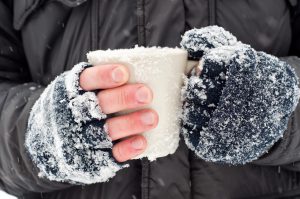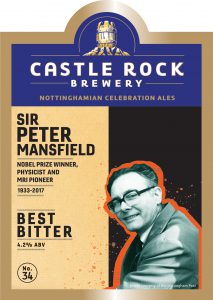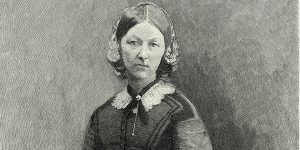
November 27, 2018, by Liz Goodwin
University News Review — October 2018
October saw many University of Nottingham news stories in the headlines…
Anti-Slavery Day
 18 October was Anti-Slavery Day, when survivors and campaigners got together to rally for change.
18 October was Anti-Slavery Day, when survivors and campaigners got together to rally for change.
To coincide with this, members of the University’s Rights Lab worked with Media Relations Manager Charlotte Anscombe, to target the press and raise awareness around the serious crime of modern day slavery and human trafficking.
One story featured a new report revealing that workers in most car washes in the UK are subject to some form of exploitation — such as excessively long hours or exceptionally low pay.
The Telegraph, The Mail, and local broadcast media outlets including BBC East Midlands Today, ITV Central and Capital FM, reported on research by Dr Akilah Jardine at the University and the Office of Independent Anti-Slavery Commissioner, which discovered that even in sites that do not necessarily run on slave labour, the average wage for a day’s work is £40.
It was also reported in October, that experts from the Rights Lab had designed an online toolkit to help local organisations and agencies to tackle modern slavery in their local communities; and a new report led by Dr Doreen Boyd argued that a better understanding of the relationship between climate change, environmental degradation and modern slavery, is vital so that all three can be tackled as part of an integrated strategy.
Stricter food labelling laws could be in place by next year
 The inquest into the death of teenager Natasha Ednan-Laperouse brought food regulations and the labelling of products to the fore this month. 15-year-old Natasha tragically died on a British Airways flight in 2016 after having an allergic reaction to a Pret A Manger sandwich, containing sesame seeds not listed on the label.
The inquest into the death of teenager Natasha Ednan-Laperouse brought food regulations and the labelling of products to the fore this month. 15-year-old Natasha tragically died on a British Airways flight in 2016 after having an allergic reaction to a Pret A Manger sandwich, containing sesame seeds not listed on the label.
Food regulation expert Dr Richard Hyde of the School of Law, explained the key issues. Speaking to The Mail, he explained that the law at the moment lists 14 different types of food allergens contained within food that should be highlighted on the label of the product.
The current law allows for a ‘general description’ but does not require identification of allergens in bold lettering on the packet. Dr Hyde said the UK regulations should change to require businesses to set out in writing what allergens are in a particular product, and that there should be a ‘duty’ to set out and declare what the allergens are, rather than putting the onus on the consumer.
A dose of strong cocoa for numb fingers and icy toes?
 People with the circulatory condition Raynaud’s are being asked to help researchers at the University to find out whether antioxidant compounds in cocoa can help alleviate symptoms.
People with the circulatory condition Raynaud’s are being asked to help researchers at the University to find out whether antioxidant compounds in cocoa can help alleviate symptoms.
The condition — where small blood vessels in the fingers or toes constrict in response to the cold — is thought to affect up to 10 million people in the UK, and the researchers are seeking to recruit around 60 healthy people, aged between 18 and 60 who report symptoms, to take part in the study.
Emma Rayner, Media Relations Manager for the Faculty of Medicine and Health Sciences, worked on the story on Primary Raynaud’s phenomenon, on behalf of Professor of Metabolic Physiology, Ian MacDonald, who is leading the research.
Professor MacDonald, said: “Previous studies in healthy people have shown an improvement in blood flow and blood pressure after consumption for cocoa flavanols so we want to test this in a group of younger individuals with Primary Raynaud’s.”
University challenge to create celebration ale
 A University brewing science student and Nottingham’s Castle Rock Brewery have combined their expertise to create what tasters describe as the perfect beer to honour the University’s Nobel Prize winner Sir Peter Mansfield, who was instrumental in the discovery and development of the MRI scanner.
A University brewing science student and Nottingham’s Castle Rock Brewery have combined their expertise to create what tasters describe as the perfect beer to honour the University’s Nobel Prize winner Sir Peter Mansfield, who was instrumental in the discovery and development of the MRI scanner.
The new beer is the latest in a series of beers brewed to celebrate the name and achievements of native and adopted sons and daughters of Nottingham.
Lindsay Brooke and Jane Icke in the University’s Press Office worked with Matthew Davies, who completed his MSc in the School of Biosciences, to promote the story and see the beer officially launched at the Vat and Fiddle pub in Nottingham this month.
Matt developed the unique recipe with Dr Rod White in the University brewing team and Castle Rock brewer Dan Mason, which combines the tastes of green tea, spice, herbs and flowers.
‘Sir Peter Mansfield’ is available in pubs across the East Midlands and Yorkshire.
Walk in the footsteps of the Lady with the Lamp
 History fans have been given unprecedented access to the Derbyshire home of Florence Nightingale, thanks to a new website being launched by researchers at the University.
History fans have been given unprecedented access to the Derbyshire home of Florence Nightingale, thanks to a new website being launched by researchers at the University.
The new site www.florencenightingale.org will allow visitors to see inside Lea Hurst in Holloway near Matlock, which is privately owned and not otherwise open to the public. A 360-degree tour of some of the key rooms in the property, which was Nightingale’s childhood home from the early 1820s, will offer the chance to take a virtual walk in the footsteps of the Lady with the Lamp.
The Mail and BBC East Midlands Today both reported on the project which is being led by Professor Paul Crawford of the University’s School of Health Sciences in collaboration with Dr Anna Greenwood in the Department of History.
“On this research journey we have been amazed at the wealth of local knowledge about, and enthusiasm for, Nightingale. Our experiences to date really show how local histories can feed into bigger national stories: Nightingale’s experiences in Derbyshire created attitudes and networks that were to endure for her entire life and beyond,” said Dr Greenwood.
Would you dare to enter the arachnarium…?
 Halloween marks the end of October and conjures up images everywhere of bats, black cats and of course spiders, who tend to suffer an unfair reputation around this time of year.
Halloween marks the end of October and conjures up images everywhere of bats, black cats and of course spiders, who tend to suffer an unfair reputation around this time of year.
Emma Thorne in the Press Office arranged for BBC Radio Nottingham to visit the University’s arachnarium to meet and film some of the eight-legged residents.
Spider expert Dr Sara Goodacre thinks the reason there is a universal fear of spiders is down to the way they move.
But she explains that the University has a range of experiments ongoing with the spiders at the moment… using them to work out how silk can be useful in medical or engineering applications; to work out how we can use them as natural pest-controllers instead of artificial pesticides; and she adds that we use them as a model to understand how the world works.
Dr Goodacre concluded: “What I’d like to say is that spiders really aren’t dangerous. They’re marvellous.”
Click here to watch the video
No comments yet, fill out a comment to be the first

Leave a Reply